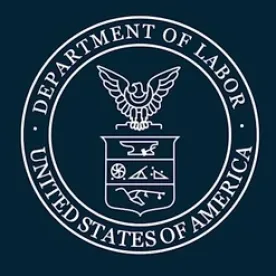Prompted by telework arrangements that arose in response to the Coronavirus Disease 2019 (COVID-19) pandemic, the U.S. Department of Labor’s Wage and Hour Division (DOL) issued a Bulletin addressing important work-from-home wage-and-hour considerations. The DOL’s Bulletin presents useful guidance for employers grappling with the challenges of managing working time and pay of employees forced into remote work arrangements by COVID-19. The Bulletin reaffirms the importance of clear timekeeping policies, procedures, and practices, and indicates that reviewing proper compensation for teleworking employees is on the DOL’s radar.
The following three key takeaways emerge from the Bulletin:
| 1. |
Companies must pay for all work if the employer knows or has reason to believe that work is being performed – regardless of whether it was scheduled or approved. |
Companies are presumed to have actual knowledge of – and in turn, must pay for – employees’ regularly scheduled work hours and any time reported by an employee. As cited in the DOL’s Bulletin, if a company “should have acquired knowledge” of hours worked outside of the regularly scheduled or reported hours “through reasonable diligence,” the company must also pay for such work time. Nevertheless, the DOL affirmed “the FLSA stops short of requiring the employer to pay for work it did not know about, and had no reason to know about.”
These principles are nothing new. They apply regardless of whether work is performed in a company location or via telework. As a practical matter, however, context can be important, as companies often have less line sight over work performed at home.
| 2. |
Companies may benefit from developing reasonable procedures that place the burden on employees to report time worked outside of their regular schedules. |
Recognizing the impact telework may have on an employer’s ability to track hours worked, the DOL’s Bulletin reaffirms an employer’s right to develop reasonable reporting procedures, placing the burden on employees to report time. In doing so, the DOL acknowledges that employers who develop such procedures may shield themselves from off-the-clock claims. This is underscored by the DOL’s statement that, if an employer has a time-reporting procedure in place and an employee “fails to report unscheduled hours worked,” the employer is “not required to undergo impractical efforts to investigate further to uncover unreported hours of work and provide compensation for those hours.” The Bulletin also states, when an employee does not follow reasonable time reporting procedures, the employee “prevents the employer from knowing its obligation to compensate the employee” and the employer is “thwarted from preventing the work to the extent it is unwanted.”
Of course, an employer will not gain any of the benefit from these principles without doing the initial work of developing “reasonable reporting procedures” and ensuring they are appropriately tailored to telework. As such, employers with teleworking employees may benefit from reexamining their relevant practices and policies.
| 3. |
Company policies and expectations around schedules, timekeeping, and reporting must be clearly articulated, consistently administered, and supported by management. |
The DOL’s Bulletin also underscores the importance of implementing a policy that: (a) requires employees to report all time worked, even if unscheduled; (b) prohibits off-the-clock work; (c) states employees may only work when scheduled or if they have received advance approval from a manager; and (d) provides reasonable procedures for employees to report time worked outside of their regular schedule. As the authorities cited in the Bulletin evidence, such a policy is often front and center for employers defending against claims that employees were not paid for all hours worked.
In developing policies appropriate to the COVID-19 era, employers may also want to consider the DOL’s specific statements in its Families First Coronavirus Response Act (FFCRA) regulations. See29 CFR 826. The FFCRA regulations state that, during the pandemic, the DOL encourages employers to implement flexible telework arrangements which allow employees to perform work while tending to family and other responsibilities, even if at unconventional times. Id. Per the DOL, employers that allow such telework flexibility during the pandemic shall not be required to count as hours worked all time between the first and last principal activity. Id. As an example, the DOL states an employee may agree to telework due to COVID-19-related reasons from 7:00 a.m. to 9:00 a.m., 12:30 p.m. to 3:00 p.m., and 7:00 p.m. to 9:00 p.m. The employer in this example would have to pay the employee for the hours actually worked that day, but not all the time between the employee’s first principal activity at 7:00 a.m. and the end of the employee’s workday at 9:00 p.m. This FFCRA exception stands in stark contrast to the traditional “continuous workday” rule, pursuant to which all time between the performance of the first and last principal activities of a workday is generally compensable work time.
Regardless of the nuances in a telework policy, the DOL’s Bulletin cautions that employees must be “properly instructed” on how to follow the employer’s timekeeping and reporting systems. The DOL also states: “(m)anagement has the power to enforce the rule and must make every effort to do so.”
***
The DOL’s Bulletin is an important acknowledgment that federal wage-and-hour obligations apply regardless of whether employees perform work at a company’s physical place of business or in their own homes. The DOL challenges employers, especially during the COVID-19 era, to examine their systems, policies, and procedures more closely. Now more than ever, employers must design these systems for both in-person and remote work, consistent with the duty to pay employees for all time worked.



 />i
/>i

